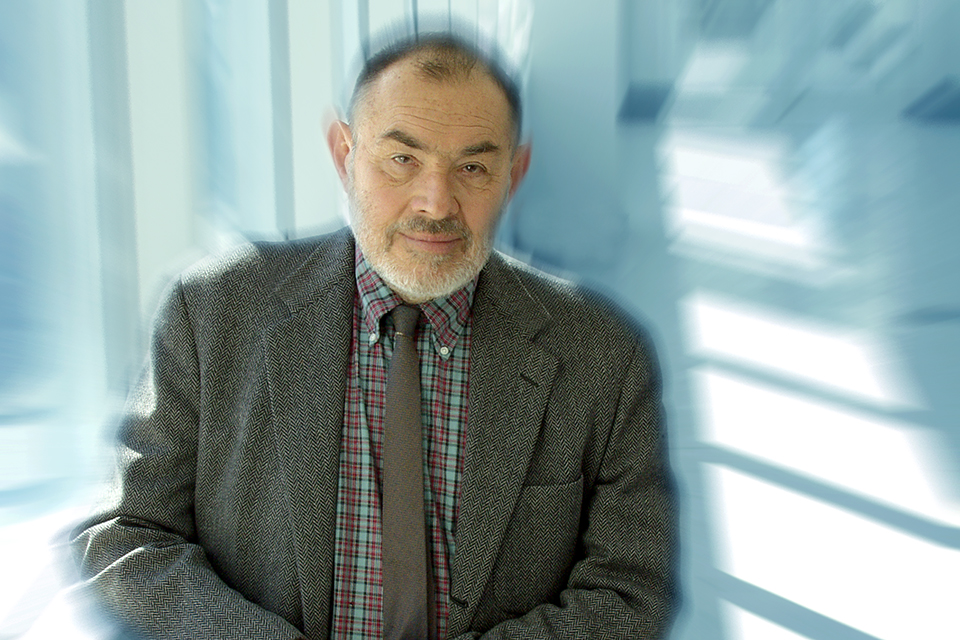Scientist Stanley Deser named member of the Royal Society
The theoretical physicist received one of the highest honors in the sciences.

Stanley Deser
Ancell Professor of Physics Emeritus Stanley Deser has been elected a foreign member of England's Royal Society, one of the highest honors in the sciences.
Deser, a theoretical physicist who made monumental contributions to general relativity, quantum field theory and high energy physics, joins an illustrious group that includes Isaac Newton, Charles Darwin and Albert Einstein.
"This is a rare honor indeed," Deser said. "My many collaborators share this award as do the institutions where I worked. Brandeis was my base for half a century."
The Royal Society was founded in 1660 and ranks as one of the oldest scientific institutions in the world. There are a total of 1,675 members. The majority are fellows and drawn from the ranks of citizens and residents of the United Kingdom, Ireland or countries in the British Commonwealth. Only 181 are from other nations and considered foreign members.
"The global pandemic has demonstrated the continuing importance of scientific thinking and collaboration across borders," Sir Adrian Smith, president of the Royal Society, said in a press release. "Each Fellow and Foreign Member bring their area of scientific expertise to the Royal Society and when combined, this expertise supports the use of science for the benefit of humanity."
Deser joined Brandeis in 1958 and, over the next 50 years attracted some of the best young minds from around the world to the physics department. He helped organize the Brandeis Summer Institutes in Theoretical Physics, which brought leading physicists to campus and put Brandeis on the map as one of the preeminent universities for theoretical physics.
Between 1959 and 1961, Deser, physicists Charles Misner and the late Richard Arnowitt discovered what is known as the ADM Formulation, a groundbreaking recasting that offered a new approach to general relativity, making it more amenable to modern thinking.
Einstein's general relativity was revolutionary because it reimagined gravity not as a force, as Newton described it, but as space curved by matter, through which matter then travels.
Deser, Misner and Arnowitt realized that Einstein's curved space could be thought of as a dynamical system on its own in total accord with the concepts of modern field theory. That realization paved the way to unify quantum field theory and general relativity.
Among Deser's other fundamental discoveries were supergravity with physicist Bruno Zumino and topologically massive gravity with physicist Roman Jackiw.
In addition to his post at Brandeis, Deser is also a visitor in theoretical physics at Caltech. He holds numerous awards and honorary degrees from both domestic and international institutions.
Categories: Research, Science and Technology





